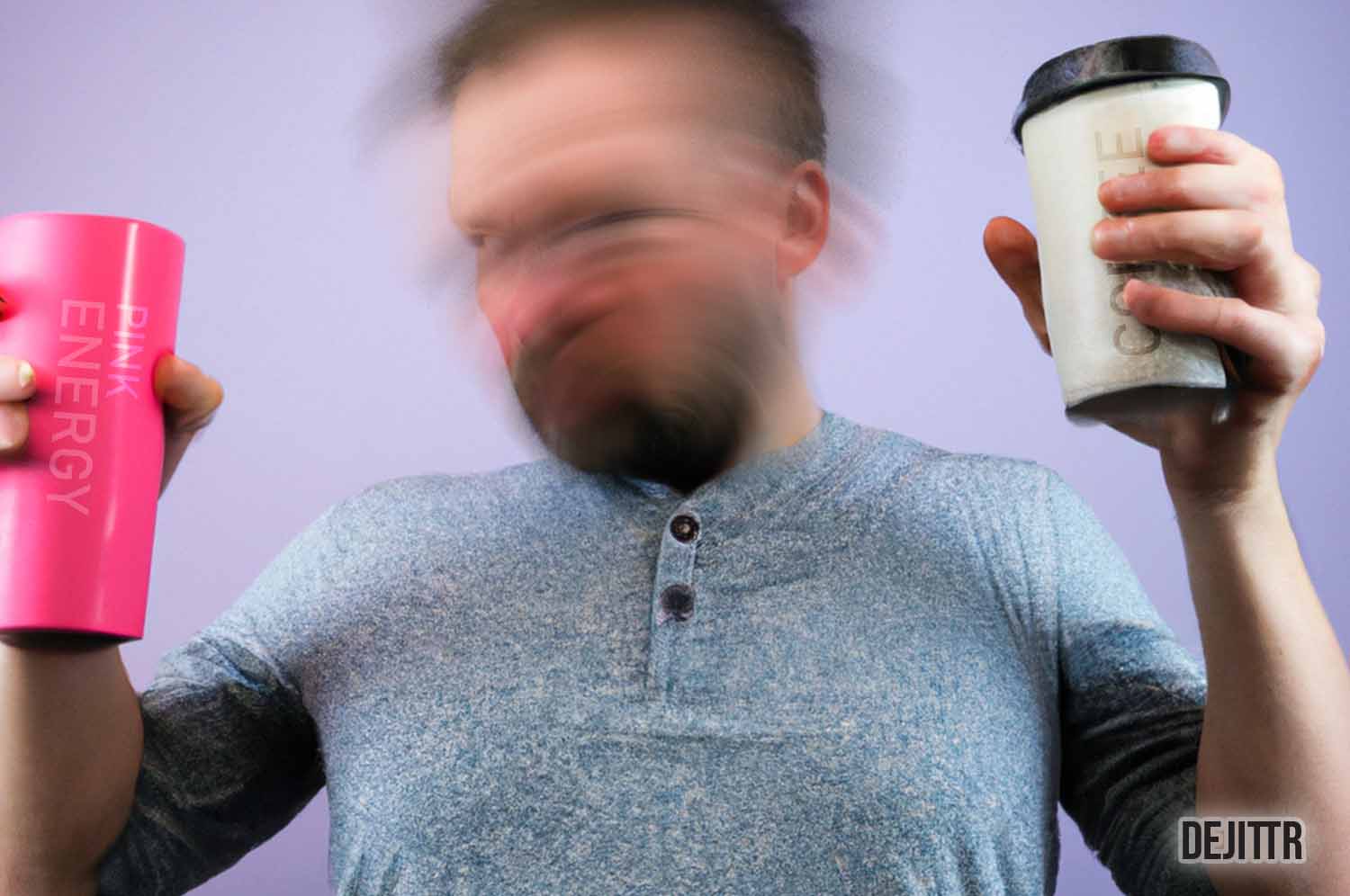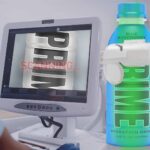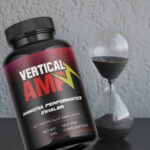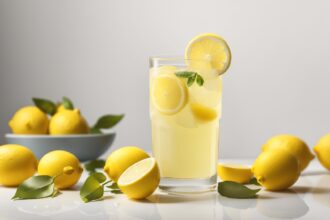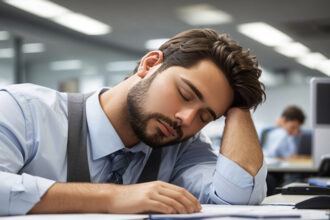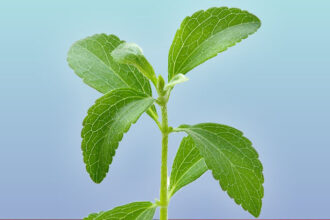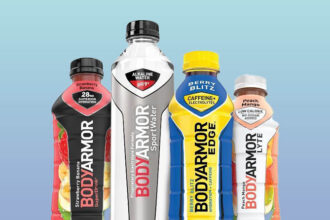Coffee can make you awake and alert, but it can also make you anxious and give you the jitters. Not every person reacts to caffeine the same way—you can even respond differently to caffeine from different sources, which is why drinking energy drinks might not make you feel the same as drinking coffee.
The main reason coffee makes you anxious, but energy drinks don’t is that coffee usually has more caffeine than energy drinks. However, this is highly dependent on the type of coffee and its brand. Caffeine blocks adenosine receptors, triggering hormones like adrenaline and dopamine.
It’s not unusual to respond to caffeine from various drinks differently. You’ll want to note which drinks make you feel anxious and which don’t so you know what to avoid. Keep reading this article to learn more about caffeine and its effects on anxiety.
Why Coffee Makes You Anxious
Coffee can make some people anxious, while others seem not to react to it at all.
Caffeine blocks your adenosine receptors, which can cause an increase in adrenaline, glutamate, and dopamine. These hormones impact your blood pressure and heart rate while increasing your sense of alertness.
Although adrenalin and dopamine can make you feel more awake and even improve your mood, they also put you in a state of fight or flight, which increases stress levels.
Caffeine can make you feel very anxious when all of these things happen together. You can be more susceptible to this side effect if you already have anxiety in the first place. On top of that, some adenosine receptors can be much more sensitive to caffeine than others, so it varies from person to person.
Coffee can also make you anxious if you take certain medications. Don’t forget that caffeine is a psychoactive drug—it doesn’t always mix well with other medicines, and this can lead to increased anxiety.
Added sugars can also contribute to anxiety. If you drink your coffee with a lot of sugar or any other edulcorant, such as syrups or whipped cream, the high sugar intake will cause drastic peaks and drops in your sugar levels. This, in turn, can lead to mood swings and is related to some of the symptoms of anxiety.
In short, coffee can get a powerful response from certain people. If you have a low tolerance for caffeine, have sensitive adenosine receptors, and already have anxiety, coffee can significantly intensify those feelings.
Why Energy Drinks Don’t Make You Anxious
But why can you drink energy drinks and not get anxious? These drinks still contain caffeine, so they should work in the same way as caffeine.
We tend to think that energy drinks have more caffeine than coffee. After all, they’re supposed to give us energy. However, coffee usually contains more caffeine than an energy drink. In fact, energy drinks might not have enough caffeine to make you anxious.
Two popular energy drink brands, Red Bull and Monster contain 80 mg of caffeine in their original cans. On average, a cup of coffee can have 95 mg of caffeine, although this amount can vary depending on the brand and the type of coffee.
If you’re not paying attention to what you drink, you can easily have more than 200 mg of caffeine in a grande coffee— which is usually more than enough to make a person anxious.
It’s not uncommon for people to feel anxious when drinking coffee, but not energy drinks. However, you’ll also find people that
Building Caffeine Tolerances
It’s possible to build up your caffeine tolerance, especially if you drink energy drinks daily. Since coffee has more caffeine, you might have a high enough tolerance for energy drinks but not for a strong cup of coffee.
Consuming more caffeine causes your body to increase the production of adenosine receptors. When that happens, caffeine will affect a smaller percentage of your adenosine receptors, which means it will have a softer effect.
Recommended Resource:
One of the goals of our website is to demystify ingredients such as caffeine. We create fun-to-read, in-depth, and medically-backed topics that our users love. Here’s another super helpful resource when you’re done reading this article.
You might find that although coffee used to make you very anxious, you can barely feel it now.
However, undoing the tolerance you’ve built up is easy. Taking a break from caffeine for a while can normalize your body’s production of adenosine receptors, making you respond to caffeine normally again.
It’s important to note that we all process caffeine differently depending on our genes and the make-up of our brain. Some people will have a naturally higher tolerance for caffeine than others without needing to build it up over time.
Since coffee contains more caffeine than energy drinks, it’s harder to build up a tolerance for it. Your body will be able to handle energy drinks without becoming anxious much sooner than it can do the same with coffee. That can make it seem like you don’t react to energy drinks the same way you react to coffee.
Signs of Coffee-Induced Anxiety
The effects of caffeine can mimic those of anxiety, and if you already suffer from anxiety in the first place, caffeine could make your condition worse or more difficult to treat. Here are the signs of coffee anxiety:
- A feeling of restlessness
- Caffeine jitters
- Insomnia at night
- Irritability
- Increased heart rate
- High blood pressure
When this happens, you’ll want to start reducing caffeine intake from all sources. It’s a good idea to track how much caffeine you consume to make it easier to cut back.
Most people are likely to feel anxious after consuming four cups of coffee, which makes for about 400 mg of caffeine. However, suppose you have a very low tolerance for caffeine. In that case, it can take a lot less coffee to trigger feelings of anxiety.
How To Manage Coffee-Induced Anxiety
If you do drink too much coffee and begin to feel anxious, there are a few steps you can take to manage the symptoms quickly:
- Stop drinking all caffeine sources immediately.
- Drink water to flush out the caffeine.
- Go on a walk to burn the extra energy and help with the jitters.
- Practice meditation or other relaxing activities.
Staying hydrated can help remove caffeine from your system, so always have some water nearby. If your morning coffee makes you too anxious, try eating fruit and having a large glass of water with it instead. Apples can give you as much energy as a small cup of coffee without having to deal with the caffeine crash later.
Coffee anxiety comes from our “fight or flight” response, which makes you feel like you can’t sit still. Getting up and moving can help lessen the response.
Can Energy Drinks Make You Anxious?
Energy drinks can make you anxious because they have caffeine. If you drink more than one can at a time, you’re much more likely to feel stressed. Caffeine from energy drinks can have the same effect as caffeine from coffee.
It’s essential to monitor your caffeine intake and ensure you don’t consume more than 400 mg. If you only drink one serving of energy drinks at a time, you probably won’t go over that amount. Those with a lower caffeine tolerance should drink much less to avoid adverse side effects.
In short, caffeine from any drink can make you anxious if you drink enough of it. It’s usually easier for people to drink too much coffee because it contains a higher concentration of caffeine. Consuming only a single serving of caffeinated drinks can help you avoid feeling anxious.
Of course, if you really like the taste, you can try going for the caffeine-free versions of many popular energy drinks.
Final Thoughts
Differences in our bodies determine how we process caffeine. Your adenosine receptors could be especially sensitive, making you feel the effects of caffeine more strongly.
Over time, you can build a tolerance to caffeine from specific sources and in certain concentrations.
Overall, you’ll want to note how you react to caffeine. In some cases, it’s best to avoid large amounts of coffee.


